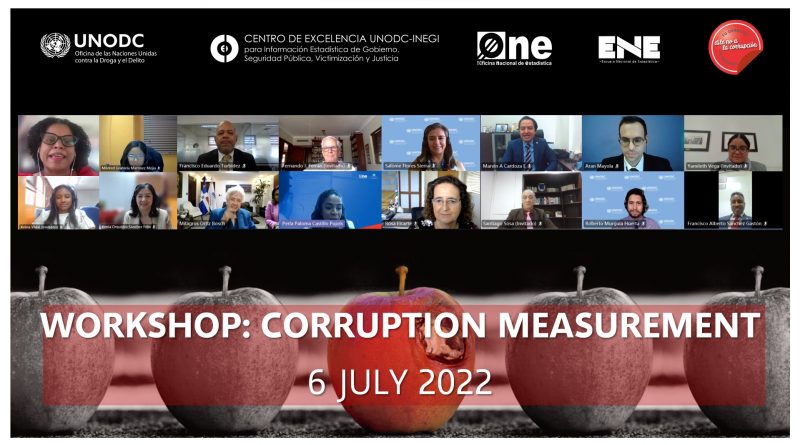Sizing up corruption: Dominican Republic promotes its measurement
On July 6, the UNODC-INEGI Center of Excellence (CoE), the National Statistics Office (ONE) and the National School of Statistics (ENE) held the Workshop: Measuring Corruption, a space that brought together various representatives of government institutions. The workshop sought to show the standards for measuring this phenomenon promoted by the CoE and the United Nations Office on Drugs and Crime.
During the workshop, the different sources of information that can be used to monitor facts related to this type of behavior, risks for its occurrence and state responses, both in the prevention and prosecution of this crime, were discussed. At all times, this measurement was linked to the use that institutions can make of these sources of information for decision-making to mitigate and, ideally, prevent corruption, not only in public sectors, but also in the private sphere.
The workshop addressed the methodology for the development of corruption surveys, as well as different indicators that can be useful for monitoring the commission of corruption from the administrative records of government institutions. In addition, the workshop emphasized the importance of incorporating a gender perspective in this type of measurement. Participants had the opportunity to reflect on how to apply this type of measures to their daily tasks and on the relevance of strengthening the exchange of information on the subject.



